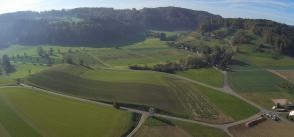
Will robots change the face of agriculture and food production?
A study on the ‘Ethics of Cyber-Physical Systems’ has recently been published by the Science and Technology Options Assessment (STOA) Panel. The study examined seven key areas, where cyber-physical systems (CPS) will have a significant impact. CPS are technical systems where networked computers and robots interact with the physical world. They are found in a wide range of services and applications. As their applications are also increasing in the area of agriculture and food production, due to the continuous development of these technologies, we have to examine what impact they will have. This blog post was prepared using information from a technical briefing paper written for the study by Professor Eldert J. van Henten (Wageningen University, The Netherlands) and Christien Enzing (Technopolis Group, The Netherlands).
How will robots change agriculture and food production?
Things will certainly change with the further introduction of CPS in these fields. Better sensors will increase safety in food production. This will be through their ability to more accurately test for diseases and the freshness of products. Using CPS to better test the food for possible issues will help to minimise risks for consumers. The increased use of autonomous machines in food production will also reduce the risk of contamination from humans, thus increasing the safety of the products. With the future introduction of robots in agriculture we may also see a change in the relationship between farmers and their animals. If robots keep replacing humans, as we have seen through the introduction of milking machines, what impact will this have on the ethics of livestock husbandry?
[Full article here | Photo by Bruce Van Camper]







